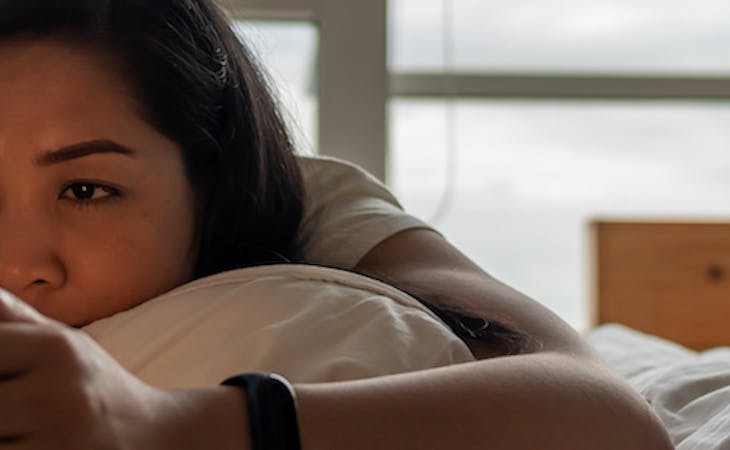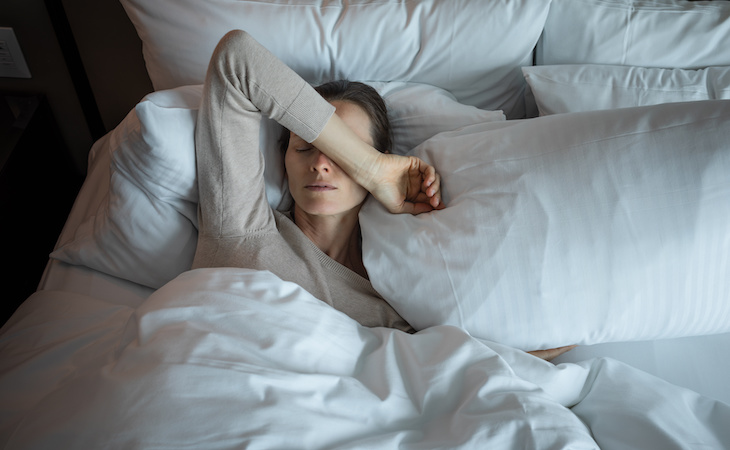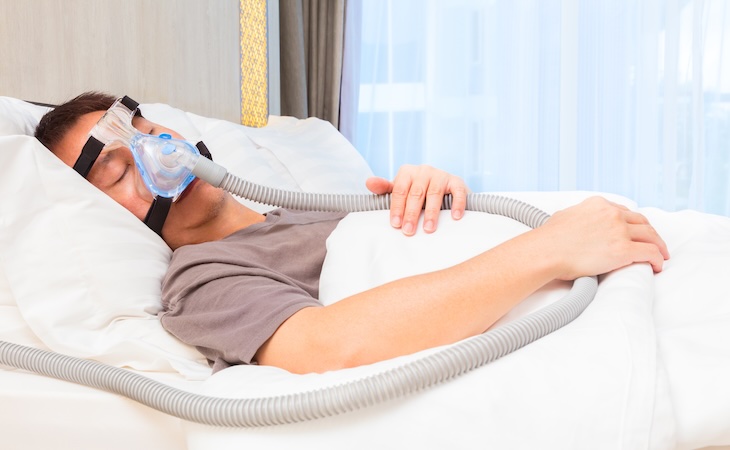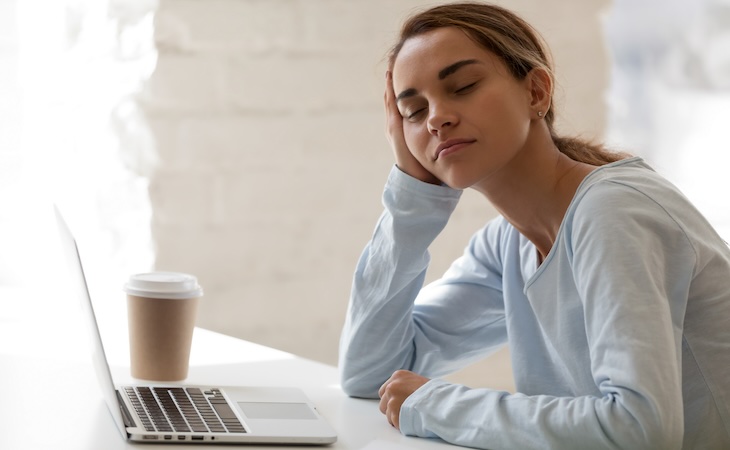The COVID-19 pandemic disrupted and changed our lives in so many ways—including our sleep habits. Even as the number of new infections drops, and the percentage of the population who have been vaccinated slowly increases, studies show many of us are still having a hard time getting our sleep back on track.
A July 2020 survey of 2,007 Americans by the American Academy of Sleep Medicine (AASM) found that stress and anxiety were disrupting sleep across the country. About one-third of those surveyed said the pandemic was worsening their sleep quality.
When AASM repeated the survey in March 2021, it found that our sleep wasn’t improving—it was getting worse. More than half (56%) of those surveyed—particularly men, people ages 35 to 44, and those living in the Northeast—reported that “COVID-somnia” was still interfering with their sleep.
Although it seems counterintuitive that so many of us still aren’t getting the shut-eye we need to function at our best and be our healthiest, the fact is that many of the changes we made last year in the depths of the pandemic are still disrupting our sleep.
Why are we still having a hard time getting good sleep?
Three of the triggers of “COVID-somnia” have been so common you might not connect them with your poor sleep:
- Poor diet and too much time indoors
- A more stagnant routine
- Increased alcohol intake
Many of us continue to work from home and are sleeping later, which can throw off our circadian rhythms. There’s also a chance some of us also still aren’t getting outside and exercising enough to work off the extra weight we packed on.
Plus, alcohol use skyrocketed during the pandemic. According to one study, 60% of people reported increased drinking due to stress, increased alcohol availability, and boredom. Booze interferes with the REM stage of sleep we need to enjoy a good night’s sleep.
And of course, the pandemic is still keeping a lot of us awake with anxiety, a well-known sleep disruptor even before we ever heard of the novel coronavirus.
In a recent survey of 2,000 Americans, more than half said “COVID-somnia” is still messing with their sleep.
“A lot of people thought that our sleep should be getting better because we can see the light at the end of the tunnel—but it’s worse now than it was last year,” Fariha Abbasi-Feinberg, MD, sleep medicine specialist and spokeswoman for the AASM, told the New York Times.
What do these changes to your sleep routine mean for your health?
Poor and inadequate sleep weren’t good for us even before the pandemic. Without the sleep you need to function at your best, you’re at greater risk for such mental health conditions as anxiety, depression, bipolar disorder, and post-traumatic stress disorder (PTSD).
The chronic stress and uncertainty of pandemic life can lead to headaches, memory lapses, digestive problems, and stress-related fatigue.
The Mayo Clinic defines fatigue as “a nearly constant state of weariness that develops over time and reduces your energy, motivation, and concentration.” It can undermine your emotional and psychological health.
“A lot of people thought that our sleep should be getting better because we can see the light at the end of the tunnel—but it’s worse now than it was last year.”
But it’s not only our mental health that has been affected by the pandemic. The extra weight so many of us packed on—the so-called “COVID 15″—could have repercussions for your physical health, and in turn, your sleep.
“For the 18 million Americans and nearly one billion people worldwide who suffer from sleep apnea, weight gain from the pandemic could make their sleep apnea worse,” says Respiratory Cram CEO Damon Wiseley, registered respiratory therapist and pulmonary function technologist who works with sleep-challenged patients in Palm Beach Gardens, Fla.
Changing sleep patterns in the pandemic has even affected our dreams.
“There was this new phenomenon where people, all across the globe, were tweeting about their bizarre, long, and vivid dreams,” says professional dream analyst Lauri Quinn Loewenberg, author of Dream On It: Unlock Your Dream, Change Your Life.
She attributes these pandemic dreams to sleeping in, since many of us were able to reach the final cycle of REM dream sleep we previously couldn’t when we had to wake up earlier and get to an office.
How to get better sleep in the continuing pandemic
If you’re having a hard time falling and staying asleep at night, here are some easy steps to help improve your chances of enjoying a good night’s rest:
- Don’t stay in bed tossing and turning if you can’t fall asleep within 25 minutes. Instead, get up and do something relaxing. Read a book or magazine in dim light. Try deep-breathing exercises. Knit or crochet if those activities relax you. Whatever you choose, do it until you feel drowsy and then return to bed.
- Write down what’s troubling you—and throw it away. This symbolic gesture, known as discharging your thoughts, can help clear your mind and empower you so anxiety isn’t in control.
- Keep the bright screens out of the bedroom. Their blue light keeps your brain thinking it’s time to be awake.
- Wake up at the same time every morning. Yes, even on weekends.
- Get sunlight every morning. This shuts down your body’s production of melatonin and helps clear your mind so you can face the day.
- Avoid caffeine after 2 p.m. This will allow your body to clear it from your system before you’re ready for bed.
- Limit your alcohol intake. Stop drinking at least three hours before bedtime so your body can metabolize and get rid of it from your system.
- Increase your physical activity during the day. Chris Airey, medical director of London-based Optimale and a National Health Service physician, says this can “make up for the reduced time you spent outdoors” and “help you feel more tired at the end of the day.”
- Develop associations with sleep, such as an activity or a scent. “A sleeping cue will help signal your body that it’s sleeping time,” says Dorothy Chambers, psychologist and sleep expert with SleepJunkie.com. “Aromatherapy can help with relaxation, which is essential to getting good sleep.”
As the pandemic continues, Waqas Ahmad, MD, family physician with Sachet Infusions, leaves us with this: “It is important to remember that even during a crisis there are plenty of things still within your control, including a sufficient amount of quality sleep.”
That’s sound advice you can sleep on.
Still struggling to catch Z’s, even as the world starts to return to normal? Check out our list of easy tips to try for better sleep.




